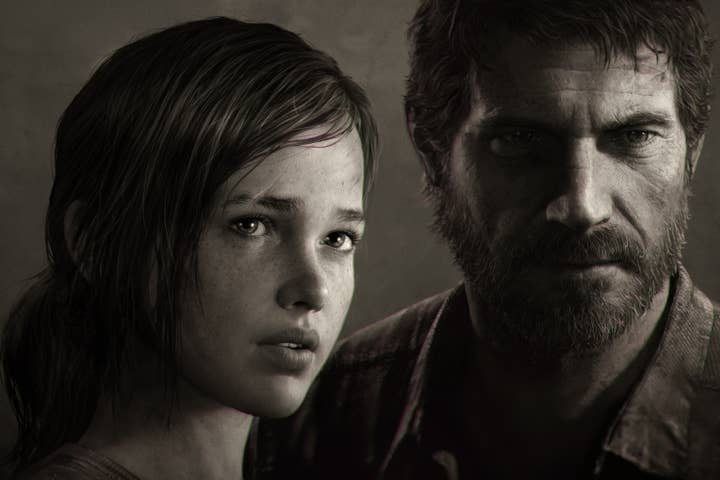Persons of the Year: The Class of 2013
Indie cred, the perils of Twitter and surviving the apocalypse - Part One of our run-down of the defining figures of the year
The coming of a new generation of consoles tends to polarise discussion. Without realising, we find ourselves reducing complex markets and multi-faceted issues to a zero-sum race: Who's ahead, and who's behind? Who's right, and who's wrong? Who sold more units, and in how many markets? But the games business is rarely so cut and dried. No success is entirely without flaws. No failure is completely bereft of merit.
So when it comes to selecting the people who defined 2013, it's necessary to give the rough and the smooth equal consideration. In this list, selected by the GamesIndustry International staff, there are gifted designers and mercurial executives sitting right alongside those at the root of controversy and scandal. But in every case they represent something vital about the place at which the games industry has arrived as the year draws to a close, and where it might head from here.
10. Neil Druckmann, Naughty Dog
When one thinks of creative directors at Naughty Dog, the mind alights to the estimable Amy Hennig. It takes a rare kind of person to thrive under that intense pressure
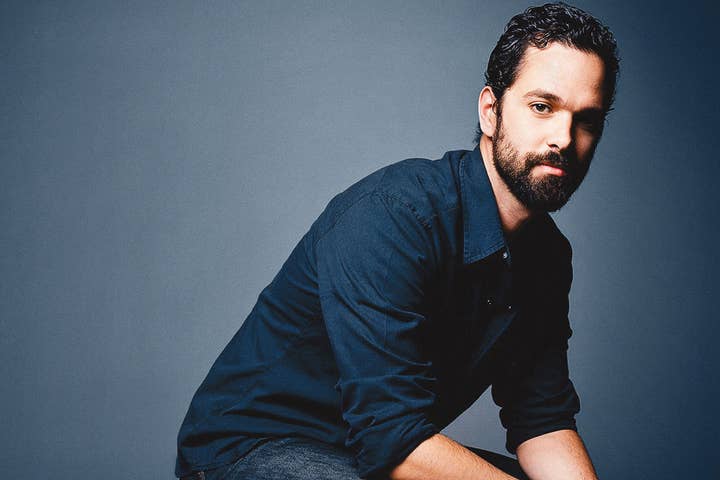
As the games industry closes out another year, the attention of the press will inevitably wander to the finest games of the preceding 12 months, and a great many of them will surely choose The Last of Us as the very best. Now that the cacophony around the start of the next-gen proper has died away, Naughty Dog's bleak, nuanced examination of human relationships in the midst of an apocalypse is a reminder that new hardware can only enable excellence - the rest is down to instinct, dedication and talent.
In some sense, a vote for Neil Druckmann, creative director on The Last of Us, is a vote for Naughty Dog as a whole, and certainly for Bruce Straley, the game's director. But where Naughty Dog has a long history of making great games, and Straley also served as director on Uncharted 2, The Last of Us marked Druckmann's emergence as one of the industry's most promising creative talents. After all, when one thinks of creative directors at Naughty Dog, the mind alights to the estimable Amy Hennig. It takes a rare kind of person to thrive under that intense pressure.
Well, Druckmann is that kind of person, and The Last of Us may well be the finest work in Naughty Dog's already impressive history.
9. Ken Levine, Irrational Games
Games like Bioshock Infinite remind the world that there really is more to this medium than Call of Duty and Candy Crush
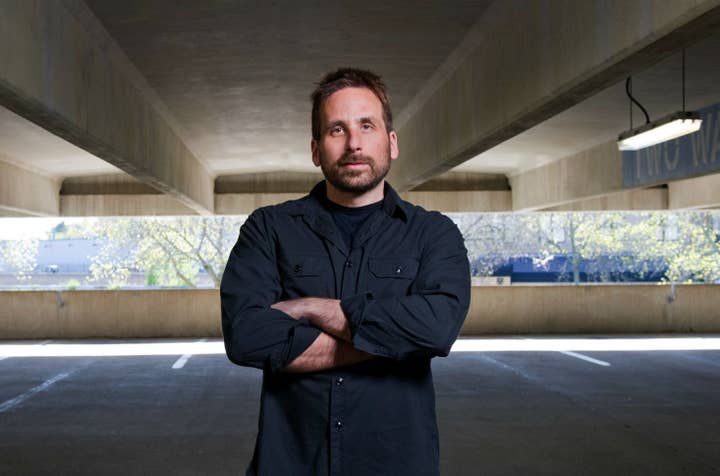
There was a time when Bioshock Infinite seemed like it could do harm to Irrational Games' sparkling reputation. Announced with little more than a cinematic trailer all the way back in August 2010, Ken Levine's conceit of a politically divided city-in-the-sky seemed so ambitious - and so reliant on technically complex ideas like moving landscapes and sophisticated partner AI - that, for some, the length of the wait was indicative of trouble brewing behind the scenes. They needn't have worried. The early announcement was simply a marketing gaffe, and Bioshock Infinite proved to be a rare thing indeed. A game of intelligence, vision and heart, by turns strikingly imaginative and uncomfortably real. Not a perfect experience perhaps, but one that, for brief, fine flashes, came awfully close.
And in Ken Levine, Irrational's talented team has the sort of front-man that the mainstream press likes to get behind. Levine is a creator first and foremost, but few creators engage with the process of promoting both their game and gaming in general with such endearing gusto. Bioshock Infinite's intense press coverage reached far beyond the typical specialist bolt-holes, invading the arts pages of fêted publications all over the world. The industry has already found acceptance in terms of pure numbers, but games like Bioshock Infinite remind the world that there really is more to this medium than Call of Duty and Candy Crush, and people like Levine can express it in a way that they'll believe.
He's extremely good value on Twitter, too.
8. John Carmack, Oculus VR
The marriage of John Carmack and Oculus VR was simply too perfect to deny, a partnership worth whatever might befall id Software as a result
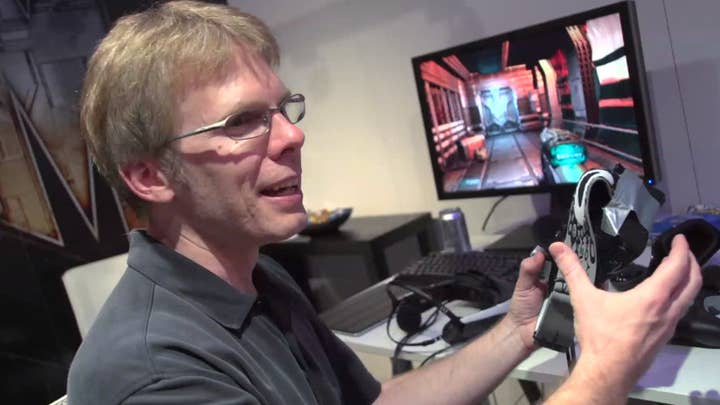
The prevailing wisdom is that there has never been a better time to be out on your own in the games industry, and that applies just as much to the old hands as the young bucks. When John Carmack decided to focus his famously keen mind on the Oculus Rift back in August, he left one toe in the pioneering company he helped found way back when. By the end of November he was gone, away from the world of AAA blockbusters - a world that, let's face it, he helped to establish - immersed in the virtual frontier. With all due deference to id Software, the marriage of Carmack and Oculus VR was simply too perfect to deny, a partnership worth whatever might befall id as a result.
And that is a question worth considering. With longtime CEO Todd Hollenshead and creative director Matt Hooper also walking away this year, the tepid reception that greeted Rage, and some rather discouraging words from parent company ZeniMax on the development of Doom 4, it isn't clear just what the future holds for id Software. One thing is certain, though: even if they write can write their own cheques, seasoned developers like John Carmack no longer need to court big business to stay on the cutting edge. Now, if Hideo Kojima would just quit Konami...
7. Adam Orth, Independent
Orth found himself at the centre of a curiously modern scandal. One that could not have happened in the run-up to the last generation of consoles
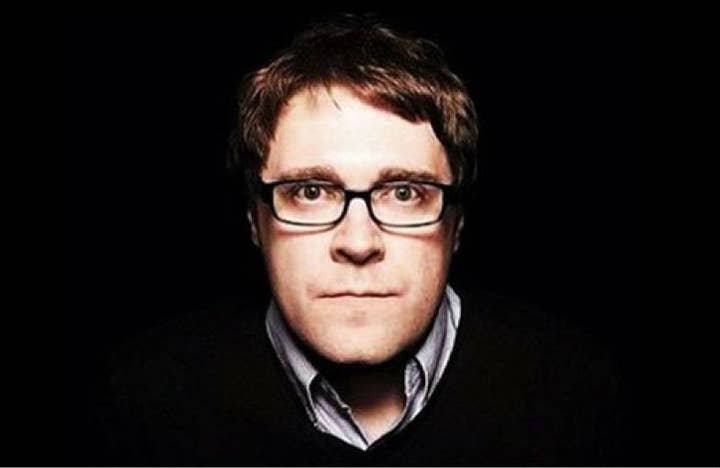
“Deal with it.” These three words, blithely tweeted in an informal discussion between Adam Orth and Bioware designer Manveer Heir, became a mantra for those with a strong distaste for the rumours springing up around Microsoft's still unannounced console. It hardly mattered whether Orth was channelling the spirit of Microsoft or - far more likely - stating a personally held opinion via a medium he saw as fit for that purpose. The storm of vitriol that followed those poorly chosen words was so immediate and intense that Orth lost his job, and he was not spared what he has since described as an “unbearable” ordeal. "I absolutely deserved any and all rational criticism and discussion based on my opinion," he later said. "Unfortunately, that's not what happened."
By the time the Xbox One had actually been revealed, it was all but necessary to see Orth as an extension of a corporation rather than an individual - there was, after all, a lot of misplaced anger to be justified. Orth found himself at the centre of a curiously modern scandal. One that could not have happened in the run-up to the last generation of consoles, and one that cast a stark light on the new pressures that exist in an industry defined by pervasive media and instant, frictionless communication. Orth made a mistake, certainly, but his 'punishment' did not fit the crime; it fit the tone and timbre of the public reaction - a reaction that, it's fair to say, was more for Microsoft's benefit than his own.
And yet Orth lost his livelihood, and the strategy for Xbox One forged ahead regardless. The influence that social networks grant the consumer is unprecedented, but it would be naive to think that, on occasion, our opinions can be overstated, our indignation amplified out of all proportion. Our ability to communicate directly with publishers and developers will no doubt change our industry for the better, but first a decision should be made: are we a part of the community, or a part of the mob?
6. Shahid Ahmad, Sony Computer Entertainment
Shahid Ahmad built a direct line to a community that has, to a large extent, been defined by its distance from the monolithic companies of the console industry
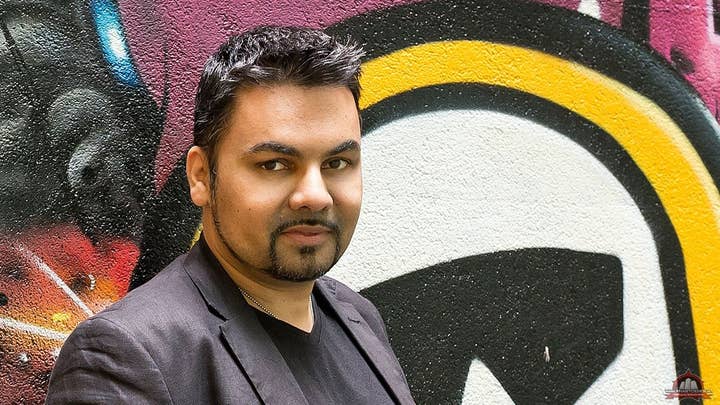
If Sony can be said to have an advantage in the early days of the new generation, it is down to influence rather than sales. In one way or another, the Xbox One has been brought into line with what Sony had in mind for the PlayStation 4, and nowhere is that more evident than in its tight embrace of indie developers. SCE's Shahid Ahmad has been the face of that push for collaboration, building a direct line to a community that has, to a large extent, been defined by its distance from the monolithic companies of the console industry.
Ahmad's work in the last few years is symbolic of perhaps the most fundamental difference between this generation and the last, and it has been a catalyst for broader change. Microsoft has now emerged as a major competitor for those signatures, but Ahmad is prepared for the challenges ahead.
"None of us are under any illusions about the job still to be done,” he told GamesIndustry International. “My biggest personal challenge last year was to help independent developers see PlayStation as the best place to play and to bring their best work to Vita. We helped bring over 20 titles to Vita in 2013, and we're set to improve on that next year.
“We're working together with the best creative talent in the video games world. That gives me great hope not just for PlayStation's future, but for the future of the industry as a whole. "
The second part of GamesIndustry International's Class of 2013 will be published tomorrow. [Update: It's now live]
